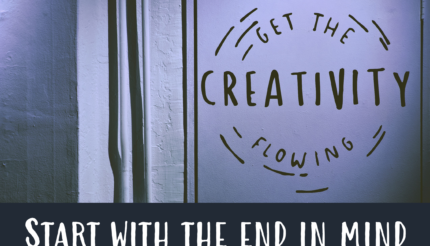Does being focused as an entrepreneur differ from being focused as a person? Perhaps a successful business owner has more demands on their time, but both rely on good habits.
When you research this subject, list-making tips seem to be coming from all directions. And on top of them, we often find a guide to removing distractions. I am not sure if it is 100% achievable. But we can certainly minimise distractions. An easy way is to turn the email notifications off, even for 15 minutes, if you wish to focus on a task at hand. Another would be to turn the aeroplane mode on your phone.
The price of 30-seconds
Research suggests that it takes us more than 23 minutes to get back to the flow of performing a task after being interrupted. So those 30-second glimpses that social media or text messages steal from us indeed cost us more than we think. If time is relative, in our working universe that half a minute equals half an hour! Another argument for turning notifications off is that the frequency with which we check our emails is linked to stress. And stress trumps performance in the long run. They calculated the average number of email checks we perform a day is 15. This does not seem too excessive but the optimum, apparently, is 3. How to achieve this magic number?
Schedule times to open your inbox
You can even set up a notification alerting your correspondents to that habit, but if you are going to be checking it three times a day, chances are you are going to reply within hours anyway. Of course, there are exceptions.
But if you are aware of a time-sensitive email, you are going to expect it. And if you are not aware of an emergency happening, it is reasonable to assume that they will call you, rather than email. And when you look in your inbox, reply to messages that require a response straight away.
The chances are that, if you leave it until the undefined ‘later’, it will be sitting at the back of your mind, beckoning, thus diluting your attention from the task at hand. I believe that approaching email communication in this manner improves the levels of self-respect, productivity, and gives you back control over your schedule.
It does not take anything from the email sender. You are still replying in a timely manner, and possibly with a better-rested head.f
Experiment for a week. See if anyone notices – apart from you noticing how it improves your concentration.
So much to do and so little time
If you are willing to schedule a time for emails, perhaps you would agree to reserve blocks of time dedicated to big tasks and strategic thinking? The saying goes that we overestimate how much we can do in a day, and underestimate what can be done in a year. Let’s bring it down to a more manageable perspective. Huge tasks can easily make us feel overwhelmed because they have so many stages. Focus on one and give it 15 minutes. Or 25 (you can check the widespread Pomodoro Technique . 15 to 30 minutes does not seem that harsh. Turn the notifications off, set up a timer and get to it. If it works, repeat. Even a marathon is a collection of small steps, so keep going. It turns out there’s a lot you can do even in a relatively short interval.
Read more How invest your time.
Start with the biggest, meanest looking one
One more thought on email opening times. Performing this task first in the day may sound like a good idea (to check for emergencies, for instance), but tends to mess with your schedule for the day and randomise the way you spend your time. Start with what you have identified as the most significant action for the day.
Be it that blog post that you wanted to write, those phone calls you are not that confident about, that funding proposal you meant to look at last week.
As Brian Tracy states in his popular book ‘If you have to eat two frogs, eat the ugliest one first.’ It frees the rest of your day, not to mention your mind, gives you a sense of achievement, improves motivation, and makes a difference over time. It’s no mean feat to be able to say, I’ve achieved five major tasks this week. It’s progress.
Add list-making to your list
Creating a to-do list is not for everyone, but it can be a good way of getting your ducks in a row if you are a list-making person. Indeed, recognising how many ducks you are dealing with in the first place. Then you can see what is significant, what is urgent and important, and what to delegate so that you have the space to focus on the critical tasks that cannot progress without your involvement.
Why is it worth to spend a few minutes identifying all those small tasks? They have a great power to overwhelm. The sheer number of actions they generate can overpower even the keenest mind and cause inertia.
I suppose having a business strategy and a business plan is a form of list-making. It is not a conventional one, but an overview of what is essential and when it needs to be pushed up to the top of the list.
For me, the two items are basic starting points for any successful business and can contribute to your success as an entrepreneur. They are my ultimate business distraction deterrents.
And if you were to ask me today how to stay focused as an entrepreneur, I would recommend you draft those two documents and often refer to them to keep on track.
Those two items will tell you which action is a distraction, therefore to be avoided, and which to dedicate your time to.







I have read your article carefully and I agree with you very much. So, do you allow me to do this? I want to share your article link to my website: gate.io
Can you be more specific about the content of your article? After reading it, I still have some doubts. Hope you can help me. https://accounts.binance.com/sl/register-person?ref=IJFGOAID